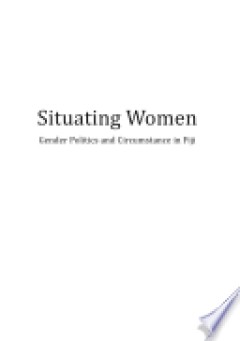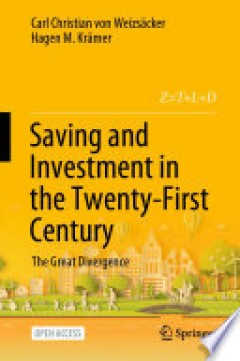Filter by

The environmental rule of law for oceans: designing legal solutions
Our oceans need a strong and effective environmental rule of law to protect them against increased pressures and demands, including climate change, pollution, fisheries, shipping and more. The environmental rule of law for oceans requires the existence of a set of rules and policies at multiple governance levels that appropriately regulate human activities at sea and ensure that pressures on th…
- Edition
- -
- ISBN/ISSN
- 9781009253741
- Collation
- xxxiii, 380 pages; illustration
- Series Title
- -
- Call Number
- 341.4 POZ t

Schooling the nation: education and everyday politics in Egypt
Telling the story of the Egyptian uprising through the lens of education, Hania Sobhy explores the everyday realities of citizens in the years before and after the so-called 'Arab Spring'. With vivid narratives from students and staff from Egyptian schools, Sobhy offers novel insights on the years that led to and followed the unrest of 2011. Drawing a holistic portrait of education in Egypt, sh…
- Edition
- -
- ISBN/ISSN
- 9781108956031
- Collation
- xii, 270 pages; illustration
- Series Title
- -
- Call Number
- 370.962 RAM s

International courts versus non-compliance mechanisms: comparative advantages…
The effective implementation of treaties is essential. This book examines the advantages of non-compliance mechanisms (NCMs) versus that of international courts and tribunals to support treaty fulfilment. It brings together globally-recognised names in international law, human rights law, environmental and climate change law, and trade law.
- Edition
- -
- ISBN/ISSN
- 9781009373913
- Collation
- xx, 508 pages; illustration
- Series Title
- -
- Call Number
- 341.5 VOI i

Trade policy and gender equality
With a range of interdisciplinary contributions and national and regional case studies, this collection offers a systematic, up-to-date evaluation of the debate relating to international trade law, policy, and gender equality. It analyses recent trade negotiations and agreements through a gender lens. Available as Open Access on Cambridge Core
- Edition
- -
- ISBN/ISSN
- 9781009363716
- Collation
- xxvii, 402 pages
- Series Title
- -
- Call Number
- 343.08 BAH t

States-in-waiting: a counter narrative of global decolonization
States-in-Waiting narrates how postcolonial statehood did not fulfill the aspirations of many nationalist claimants demanding independence. Foregrounding little-known regions and the networks connecting them to global politics, Lydia Walker illuminates the un-endings of decolonization. This title is also available as Open Access on Cambridge Core
- Edition
- -
- ISBN/ISSN
- 9781009305815
- Collation
- xvi, 283 pages; illustration
- Series Title
- Global and international history
- Call Number
- 320.9 WAL s

Global governance in a world of change
Global governance began in the mid-nineteenth century and accelerated after the First World War. But it came of age in the post-Second World War era. In response to the lessons learned from the collapse of international order between the wars, and the need to rebuild after the devastation wrought by the Second World War, states, with the USA in the lead, set out to create a new and comprehe…
- Edition
- -
- ISBN/ISSN
- 9781108843232
- Collation
- pages cm
- Series Title
- -
- Call Number
- 341.2 BAR g

World protests : a study of key protest issues in the 21st century
This book analyzes almost three thousand protests that occurred between 2006 and 2020 in 101 countries covering over 93 per cent of the world population. The study focuses on the major demands driving world protests, such as those for real democracy, jobs, public services, social protection, civil rights, global justice, and those against austerity and corruption. It also analyzes who was demon…
- Edition
- 1
- ISBN/ISSN
- 9783030885137
- Collation
- xix, 185p. : ill.
- Series Title
- -
- Call Number
- 327.101 ISA w

Situating Women : Gender Politics and Circumstance in Fiji
Since the time of decolonisation in Fiji, women’s organisations have navigated a complex political terrain. While they have stayed true to the aim of advancing women’s status, their work has been buffeted by national political upheavals and changing global and regional directions in development policy-making. This book documents how women activists have understood and responded to these cha…
- Edition
- -
- ISBN/ISSN
- 9781922144157
- Collation
- 278
- Series Title
- -
- Call Number
- 305.4099611.GEO

Saving and investment in the twenty-first century : the great divergence
This open access book offers a new, capital-theoretical perspective on the macroeconomic relationship between desired wealth and investment, and it presents new empirical data on private wealth and its composition in the OECD plus China area. The authors argue that a free economic and social order can only be stabilized if the wealth aspirations of individuals are met under conditions of price …
- Edition
- 1
- ISBN/ISSN
- 9783030750312
- Collation
- xxi, 343p. : ill.
- Series Title
- -
- Call Number
- 339 CAR s

NL ARMS Netherlands annual review of military studies 2020 : deterrence in th…
This open access volume surveys the state of the field to examine whether a fifth wave of deterrence theory is emerging. Bringing together insights from world-leading experts from three continents, the volume identifies the most pressing strategic challenges, frames theoretical concepts, and describes new strategies. The use and utility of deterrence in today’s strategic environment is a topi…
- Edition
- 1
- ISBN/ISSN
- 9789462654198
- Collation
- XXV, 530 p. : ill.
- Series Title
- NL ARMS
- Call Number
- 355.0217 OSI n
 Computer Science, Information & General Works
Computer Science, Information & General Works  Philosophy & Psychology
Philosophy & Psychology  Religion
Religion  Social Sciences
Social Sciences  Language
Language  Pure Science
Pure Science  Applied Sciences
Applied Sciences  Art & Recreation
Art & Recreation  Literature
Literature  History & Geography
History & Geography